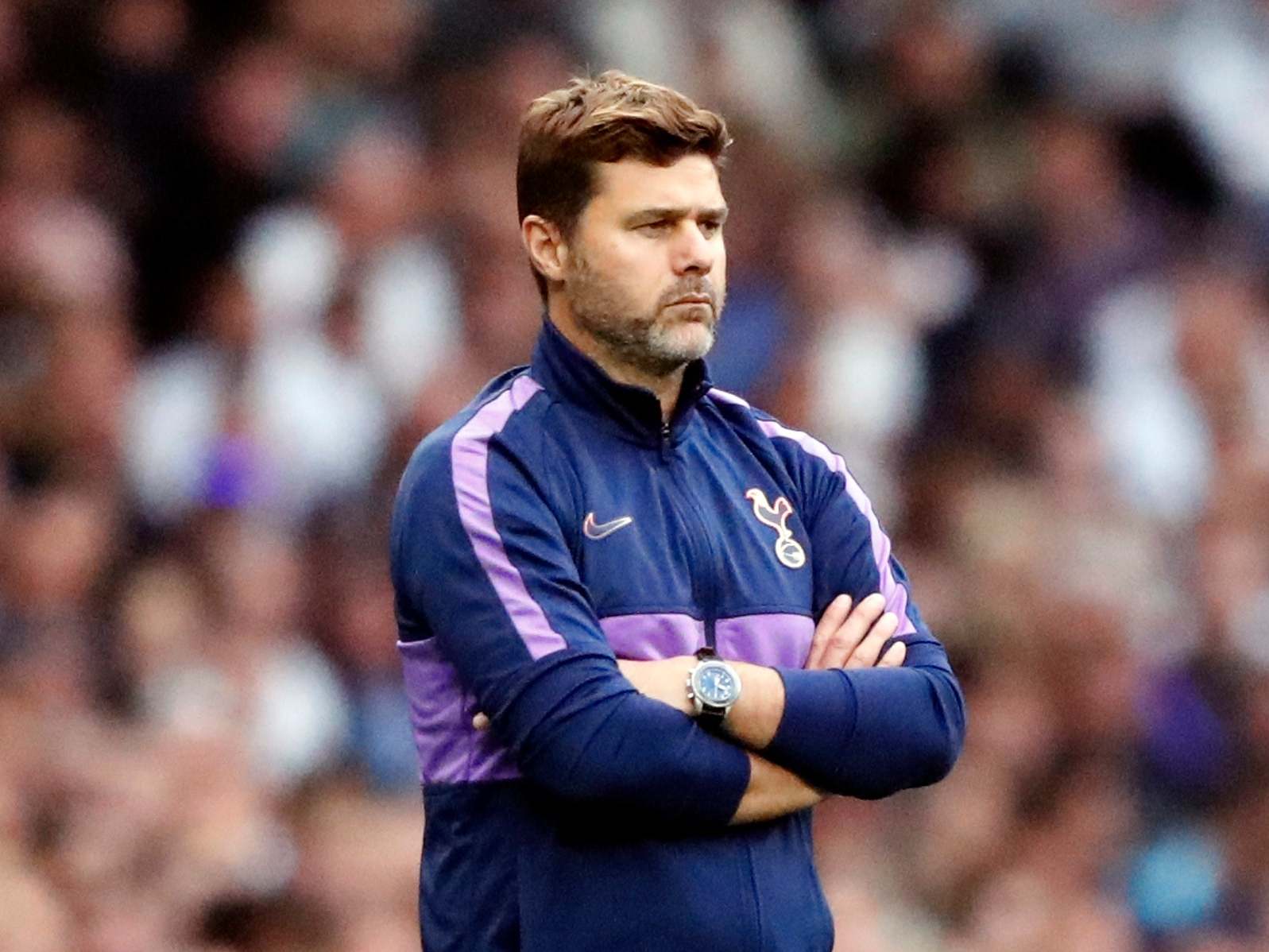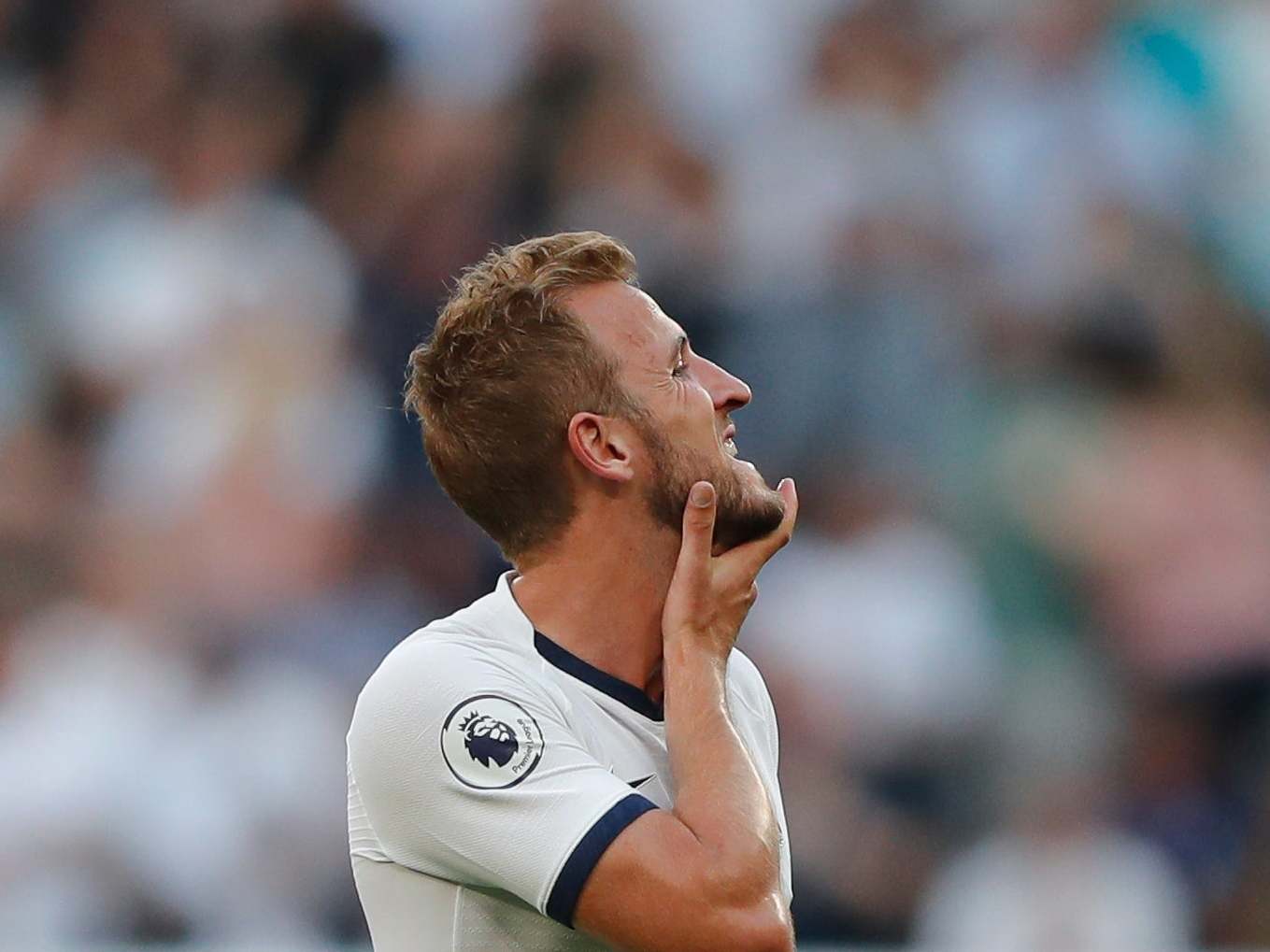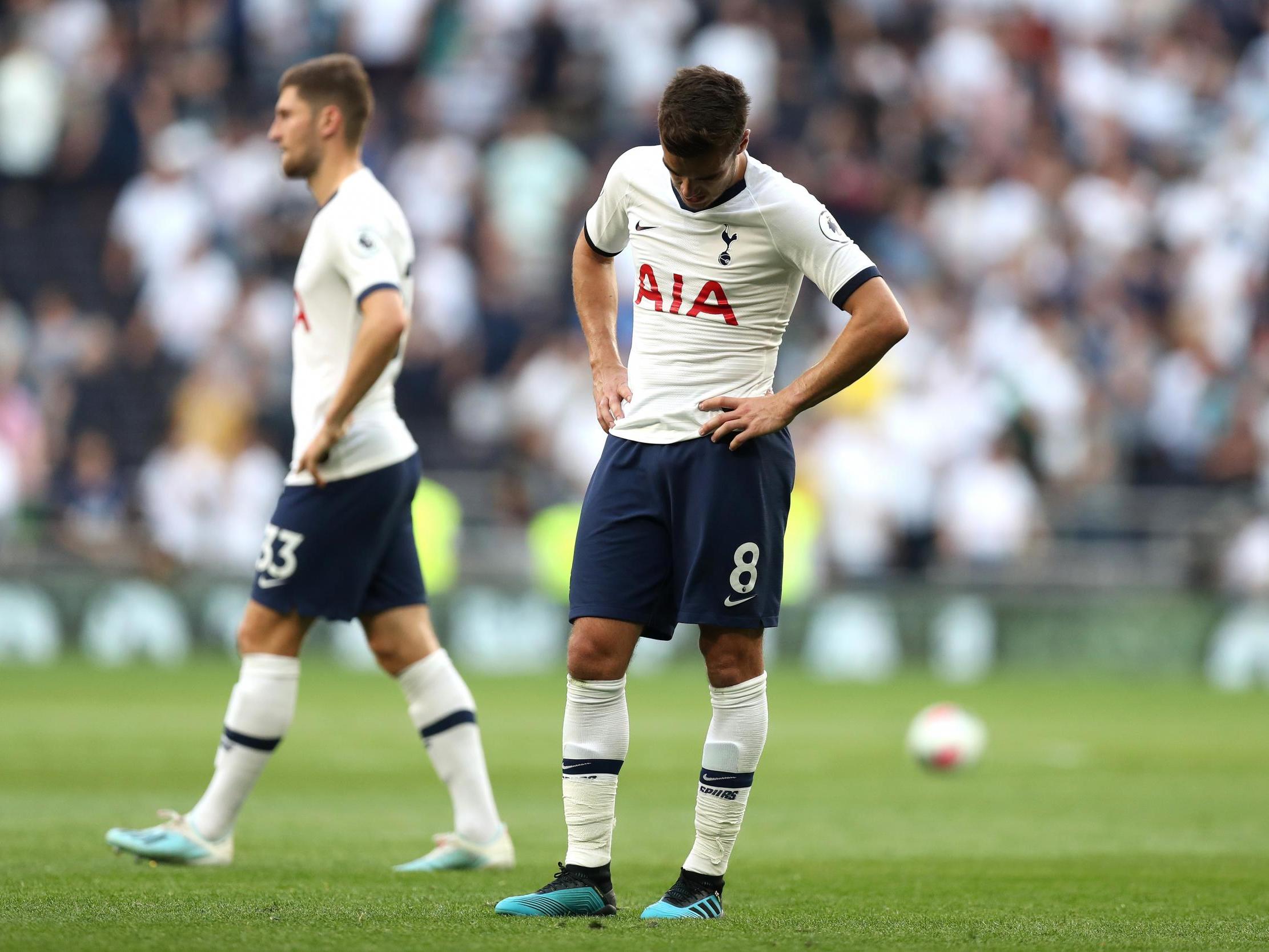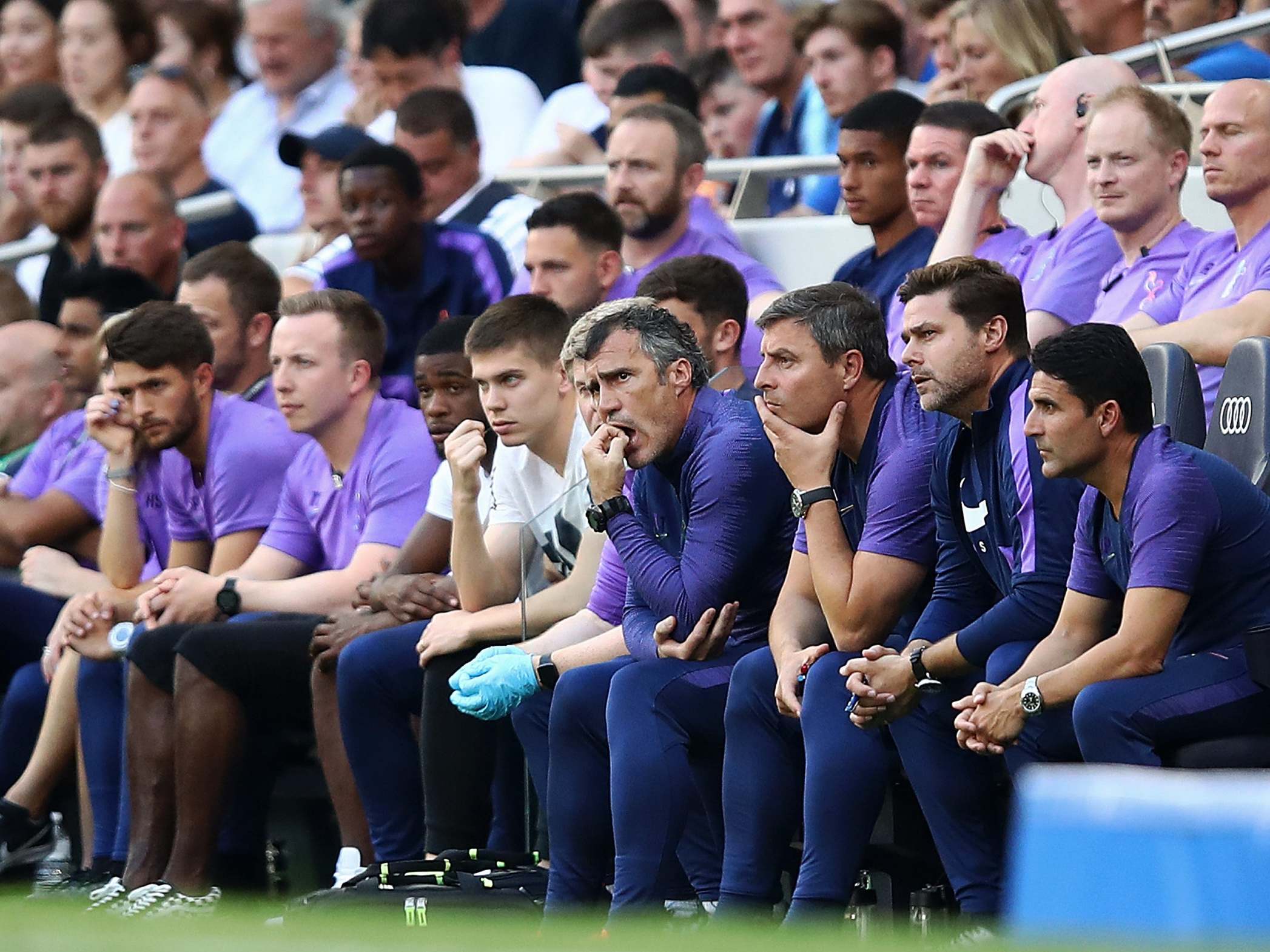Tottenham’s troubles: Mauricio Pochettino’s inflexibility, the European transfer window and a team gone stale
Whereas Spurs used to look so defiantly restless, the side now looks stale and deflated. Exactly what is going on?
The Tottenham Hotspur squad are as puzzled by the situation as anyone else. Although the natural presumption would be that there’s some big story behind Mauricio Pochettino dropping Jan Vertonghen, it certainly doesn’t seem that way.
There’s been no big blow-up. There’s certainly been no punch-up. There’s just been the same refrain from many close to the squad. “It’s just typical Pochettino,” they say.
It’s a decision taken without any apparent explanation, one that the manager will stubbornly persist with until the moment he doesn’t – as has been precisely the case for five years.
That might be the biggest issue of all at Spurs, however, in a start to the season that has at least been disconcerting.
So many of the players are just accustomed to this management. Such an enigmatic approach no longer quite energises them or “keeps them on their toes”. It’s something they’re now used to.
And it’s difficult not to think it’s played a part in everyone else at Spurs suddenly getting used to the deflating feeling of defeat, where once they had been so defiantly relentless.
Sure, Sunday’s 1-0 home loss to Newcastle United may have only been the first of the season, and of the freakish sort that can happen. But it was also the 15th of 2019, and of the sort that has become all too frequent: Spurs dropping points where they were previously a certainty to win.
The big question, especially in a year when many expected Pochettino to make the big step and leave, is whether it’s all just gone stale.
If that sounds reactionary, there is actually more rationale to it than just a few bad results. Some of it is the cast-iron logic of the man who Pochettino looks up to more than any other in management.
“A four-year cycle is probably the most you can achieve in terms of success,” Sir Alex Ferguson said in 2010, in one of those genius slivers of insight that illustrates some of the thinking behind so much success. He felt that, after four years, the same team just couldn’t keep the same vibrancy. They couldn’t keep the same cohesion and couldn’t keep listening to the same message. The chemistry needed to change. This was why top players were suddenly discarded. This was why United so rarely went stale.
It is a rationale Pochettino has not yet adhered to.
The core of this group – Hugo Lloris, Vertonghen, Toby Alderweireld, Danny Rose, Ben Davies, Eric Dier, Dele Alli, Christian Eriksen, Harry Kane – has now gone through an entire four-year cycle, with some of them going longer. Eight of the regular starters have been there since Pochettino came in.
There just hasn’t been sufficient change around them, with that emphasised by so many underwhelming transfer windows, and that naturally removing some of the electrical charge. Even this window just kept the team at the level, with relatively direct replacements, rather than moving them in the way Paolo Dybala might have done.
This was precisely why Ferguson would make apparently abrupt decisions with personnel, often after years of just ticking along. Contrast his quiet summers of 1994 and 1999, for example, with the eyebrow-raising changes of 1995 and 2001.
Ferguson knew he needed to freshen it up, to keep a frisson in the team. Even the core players who weren’t moved on – like Ryan Giggs or Paul Scholes – were still given competition to think about. It meant they weren’t dwelling on the manager’s message alone.
This is the dilemma almost every senior player at every successful team has articulated at some point: “No matter who you are, no matter what you say, the message will start to sound the same after a while.”
And too much has been the same at Tottenham. The core of the team has been the same. The manager has been the same. It is hard not to start thinking it’s why results have changed.
It should be stressed that none of this is to write either the manager or the team off. Look, for example, at both Jurgen Klopp and Borussia Dortmund now after the disaster of 2014-15.
This is similarly not to say it will be as bad as that Bundesliga campaign. Pochettino and his team can both still be brilliant, and obviously still be brilliant together.
There’s also the reality that the rough patch was always going to come. Spells like this are something you’ll inevitably experience when you stay around somewhere long enough.
But the big challenge – arguably more than winning the secondary trophies like the League Cup – is rising to it and lifting the team again.

That is what makes this period, and particularly this Sunday’s North London derby, so engaging. But a rough patch it is, and the evidence is tangible and easy to see.
First of all, there are those 15 defeats in 2019. But there’s also the fact that they currently trump the number of wins (14). Spurs have actually only won four of the last 15, and haven’t won an away game in the league since January.
Many might fairly point to the Champions League run, and how it’s ridiculous to say a team that got to the club game’s greatest stage has gone “stale” – but that almost proves the point.
The eliminations of Manchester City and Ajax were not classically calculated Pochettino displays but largely adrenaline-fuelled chaos with wild swings and players pushing themselves through on emotion, in a way that is historically in-keeping with declining teams raising it amid the heightened atmosphere of big games.

There’s also the problem that there was no crescendo. The tepid final defeat to Liverpool was itself entirely in-keeping with the poor domestic performances. “Focusing on the Champions League” does not sufficiently explain such a drop-off.
Similarly, had those single big moments gone a different way in the big European ties, or one of either United or Arsenal not been a greater disaster at the end of last season, Spurs would have suddenly endured another underwhelming Champions League campaign and failed to qualify for the next one.
The reality is Spurs should easily be the third best side in the Premier League, but it suddenly feels they’re not because of a series of intangible complications. This is where the staleness, however, starts to become evident.
Right now, and going back to December 2018 in domestic competition, Spurs have been lacking in dynamism, in movement, in energy.
Take Sunday. The static movement of the front three, who just seemed bunched together, was a world away from the invigorating interchanges of their 2016-17 peak.
And what has happened to the pressing? This is a team that used to oppressively corral teams into the box to the point of collapse, and led to opposition coaches like Quique Sanchez Flores breathlessly describing them as “animals”. No one really talks about Spurs in that way right now, with such praise having passed onto Liverpool. There could be no more visible manifestation of “staleness”.
This is where the deeper challenge for Pochettino arises, in addressing this issue. But the concern so far is that it is instead only being reinforced by the same old approaches.
Just like Ferguson, Pochettino has very sensationally discarded big players before, specifically to create cohesion in the team.

The core idea has always been that any doubt, expressed by any player, dilutes the essential will of the team.
The problem is that such a view is far too hard-edged for the more uneven elements of team management, and there will always come a point when it is almost self-defeating.
That seems to have happened with Christian Eriksen, who actually looks more necessary than ever to Tottenham’s sense of attacking nous.
And yet, with the player’s future still in doubt, it is as if Pochettino has come up with some half-way house solution rather than the full-blooded team he idealises.

The argument is that will change once 2 September comes, and the Argentine absolutely knows who is with him for the season.
The issue right now is that it feels like these moves for cohesion are inadvertently rocking the bock. Many would also point to Pochettino’s own public comments about the lack of “unity” after the Newcastle game, which seem in-keeping with some of his more inconsistent sentiments of the last few months. He would on one hand talk about building a dynasty at Spurs, and then the other talk about leaving if they won the Champions League.
That is what this keeps coming back to: the issue of Pochettino not actually returning.
Playing into much of this is that many players actually expected a change. Sources say that, around May, some of the squad believed he would leave in the summer. Some were primed for him to go. Instead, they’re faced with the same old ambiguity.

There’s similarly the problem that some senior players have been a little more curious about the tactics. The outlines for how he wants the team to play aren’t quite as clear as they used to be, with more focus on individuals being asked to do different jobs in different games. It just feels more of a muddle, of the type that arises when an idea has been in place for a while.
One theory among the players about Vertonghen is that, coming from the more outspoken Ajax school, he has inadvertently made comments that Pochettino hasn’t liked. So he’s been left out, leaving Spurs short of their best team.
Realistically, Pochettino hasn’t even been able to field his strongest starting XI. From the sides that have started so far this season, it’s likely to look very different – especially in midfield.
The Argentine, for his part, has mirrored Ferguson there and totally transformed a key area of the team. It’s just that Tanguy N’Dombele and Giovani Lo Celso haven’t been fit enough yet.
Their introduction should invigorate the side, especially given their specific attacking talents. They should encourage more movement of players, and the ball, allowing them to more naturally unlock teams again.
Some players also feel the explanation for the current form is much more prosaic: that the current “staleness” is really just the usual effect of a high-intensity pre-season – the effects of which will eventually come good for the team.
Pochettino has also specifically spoken about a new cycle and freshening things up.
It is of course highly likely that a mid-season surge makes all this seem utterly ridiculous, and will make arguments like this all the more puzzling.
But it doesn’t change the fact that some of the players are puzzled now – and not just about Vertonghen.
Saturday is another big north London derby that will feed into a much bigger debate. The hope for many is that it’s “typical Pochettino” in the best sense: pushing through when all logic suggests you’ve hit a ceiling.
Join our commenting forum
Join thought-provoking conversations, follow other Independent readers and see their replies
Comments
Bookmark popover
Removed from bookmarks